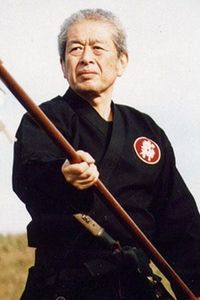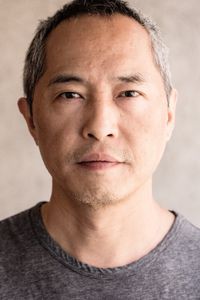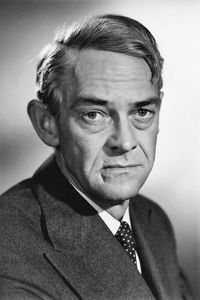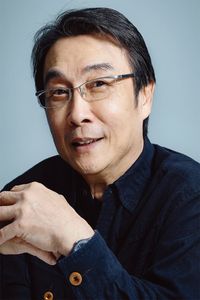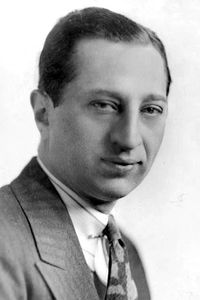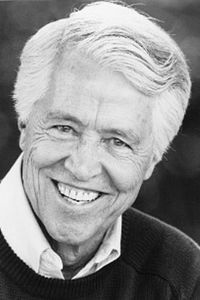On a chilly winter morning, December 2nd, 1931, in the charming city of Noda, Chiba, a remarkable individual was born, destined to leave an indelible mark on the world of martial arts.
Throughout his formative years, Masaaki Hatsumi distinguished himself as a multifaceted individual, embracing a diverse range of extracurricular activities that showcased his athleticism, artistic inclinations, and charisma.
As a student, he was an accomplished participant in various sports, demonstrating his physical prowess and competitive spirit. His involvement in martial arts further honed his discipline, agility, and mental toughness.
In addition to his athletic pursuits, Hatsumi also explored his creative side, actively engaging in theater and other performing arts. This multifaceted approach allowed him to cultivate his artistic expression, develop his communication skills, and build his confidence.
One of his most notable achievements during this period was his appointment as captain of the school football team. This leadership role served as a testament to his exceptional organizational abilities, strategic thinking, and capacity to inspire and motivate his peers.
As a result, Hatsumi's school years were marked by a remarkable balance of physical, artistic, and intellectual pursuits, laying the foundation for his future accomplishments and personal growth.
Meiji University was the esteemed institution where Hatsumi's fascination with martial arts continued to flourish, as he devoted himself to the study of judo, ultimately achieving the esteemed rank of Yudansha, also referred to as Dan rank, a testament to his unwavering dedication and proficiency.
As his skills in judo evolved, Hatsumi's passion for sharing his knowledge with others led him to take on a new role, instructing American soldiers stationed at the nearby Yokota Air Base in the art of judo, thus commencing a journey of mentorship and cultural exchange.
After completing his formal education, Hatsumi set out on a remarkable journey of self-discovery, driven by an insatiable passion to refine his martial arts skills. At the tender age of 26, he was fortunate enough to cross paths with the illustrious Toshitsugu Takamatsu, a martial arts master renowned for his impressive prowess and nicknamed "the Tiger of Mongolia" due to his extraordinary abilities.
Takamatsu, impressed by Hatsumi's dedication and potential, graciously accepted him as his student, and for the next 15 years, Hatsumi had the privilege of studying a wide range of ninjutsu styles under the guidance of Takamatsu and other esteemed members of the Takamatsu family.
Masaaki Hatsumi's relentless pursuit of martial arts mastery led him to absorb and excel in a diverse range of disciplines, including judo, Shito Ryu karate, aikido, and kobudo, throughout the duration of his rigorous training.
In the year 1972, the esteemed Takamatsu passed away, leaving behind a legacy that would be forever tied to Hatsumi's destiny. As the chosen successor, Takamatsu bestowed upon Hatsumi the revered title of Soke, a symbol of his trust and confidence in the younger martial artist's abilities.
Mastery of the martial arts is a hallmark of Hatsumi's illustrious career, with his extensive collection of ancient ninja school scrolls and samurai jujutsu school scrolls serving as a testament to his unwavering dedication to the art. This impressive assemblage of scrolls, comprising three from the ninja school and six from the samurai jujutsu school, speaks volumes about Hatsumi's unparalleled expertise and command of the martial arts.
As his reputation grew, Hatsumi went on to found the Bujinkan Dojo in Noda, Japan, a prestigious institution where he shared his profound knowledge with a new generation of students. Within the walls of this esteemed dojo, Hatsumi imparted the secrets of the nine schools, passing on his mastery to a new crop of aspiring martial artists.
It was the year 1982 when the doors of international involvement in the ancient martial art of ninjutsu swung open for Masaaki Hatsumi, marking the commencement of a journey that would take him to numerous corners of the globe. This inaugural trip to the United States served as the catalyst for his extensive travels, which have since become an annual tradition. Every year, Hatsumi participates in the prestigious ninjutsu Tai Kai gatherings, a testament to his unwavering dedication to the art and his commitment to sharing its timeless principles with a global audience.
Masaaki Hatsumi
Born in 1937, Masaaki Hatsumi is a Japanese martial artist, philosopher, and author who has dedicated his life to the study and preservation of ninjutsu. As the founder of the Bujinkan Dojo, he has been instrumental in popularizing this ancient art, which is deeply rooted in Japanese history and culture.
Hatsumi's fascination with ninjutsu began at a young age, and he went on to study under the tutelage of Dr. Toshitsugu Takamatsu, a renowned expert in the field. Under Takamatsu's guidance, Hatsumi's understanding of ninjutsu deepened, and he eventually succeeded his teacher as the leader of the Bujinkan Dojo.
Throughout his illustrious career, Hatsumi has written numerous books on ninjutsu, including "The Art of Ninjutsu" and "Ninjutsu: History and Tradition." He has also been featured in various documentaries and films, showcasing his unique approach to ninjutsu and its applications in modern life.
Despite his many accomplishments, Hatsumi remains humble and dedicated to his craft, continuing to teach and inspire new generations of ninjutsu practitioners. His commitment to the art and his unwavering passion for sharing its wisdom have made him a revered figure in the world of martial arts.
Not only did Masaaki Hatsumi dedicate his life to the pursuit of martial arts excellence, but he also simultaneously pursued a career as a Seikotsu-in, a traditional Japanese bonesetter, following his graduation from his educational institution. Furthermore, he held the esteemed position of chairman of the prestigious Writers Guild of Japan at one point in his illustrious career.
In addition to his multifaceted endeavors, Hatsumi also demonstrated his versatility by taking on the role of writer for a martial arts magazine, aptly titled Tetsuzan, which was successfully distributed in a remarkable 18 countries around the world.
Masaaki Hatsumi, a renowned figure in the realm of martial arts, has etched a lasting impression on the world, disseminating his profound understanding and ardent enthusiasm to an extensive array of individuals scattered across the globe, leaving an enduring legacy that transcends borders and time.
